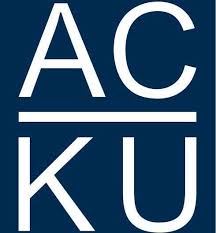Managing concurrent and repeated risks : explaining the reductions in opium production in Central Helmand between 2008 and 2011 / David Mansfield ; Alcis Ltd. & OSDR ; editing and layout Oliver Lough.
Material type: TextPublication details: Kabul : Afghanistan Research and Evaluation Unit (AREU), 2011. Description: 105 p. : col. maps ; 30 cmSubject(s):
TextPublication details: Kabul : Afghanistan Research and Evaluation Unit (AREU), 2011. Description: 105 p. : col. maps ; 30 cmSubject(s): - Opium poppy -- Afghanistan -- Hilmand
- Opium poppy -- Economic aspects -- Afghanistan -- Hilmand
- Opium trade -- Economic aspects -- Afghanistan -- Hilmand
- Agriculture -- Economic aspects -- Afghanistan -- Hilmand Province
- Livelihoods -- Afghanistan -- Hilmand Province
- Afghanistan -- Hilmand Province -- Rural conditions
- Pamphlet SB295. O65.
| Item type | Current library | Call number | Copy number | Status | Date due | Barcode | Item holds | |
|---|---|---|---|---|---|---|---|---|
 Monograph
Monograph
|
Afghanistan Centre at Kabul University | Available | 3ACKU000352053 | |||||
 Monograph
Monograph
|
Afghanistan Centre at Kabul University | Pamphlet SB295.O65.M36 2011 (Browse shelf(Opens below)) | 2 | Available | 3ACKU000352046 |
Summary: “This paper seeks to explore what factors have driven recent reductions in poppy cultivation in Helmand and how sustainable they are. It finds that while household concerns about food security because of high wheat prices were key in driving down poppy cultivation between 2008 and 2009, the coercive power of the Afghan state and international military forces has been significant in determining levels of cultivation in central Helmand in 2010 and 2011.Sustainability of these effects will vary among different communities. Broadly speaking, this research suggests that reductions in poppy cultivation are: (1) most sustainable among communities close to urban centres with access to diverse income opportunities, government support programs and better security; (2) least sustainable among communities that have responded to the government’s poppy ban but lack viable alternatives and remain exposed to violence and intimidation by both sides in the conflict; (3) and non-existent among a growing number of communities in the desert north of the Boghra Canal where opium production has provided the means to own and cultivate land, and the Taliban is increasingly seen to provide a relatively secure environment for households to secure income and accumulate assets.”—(P. 1).
